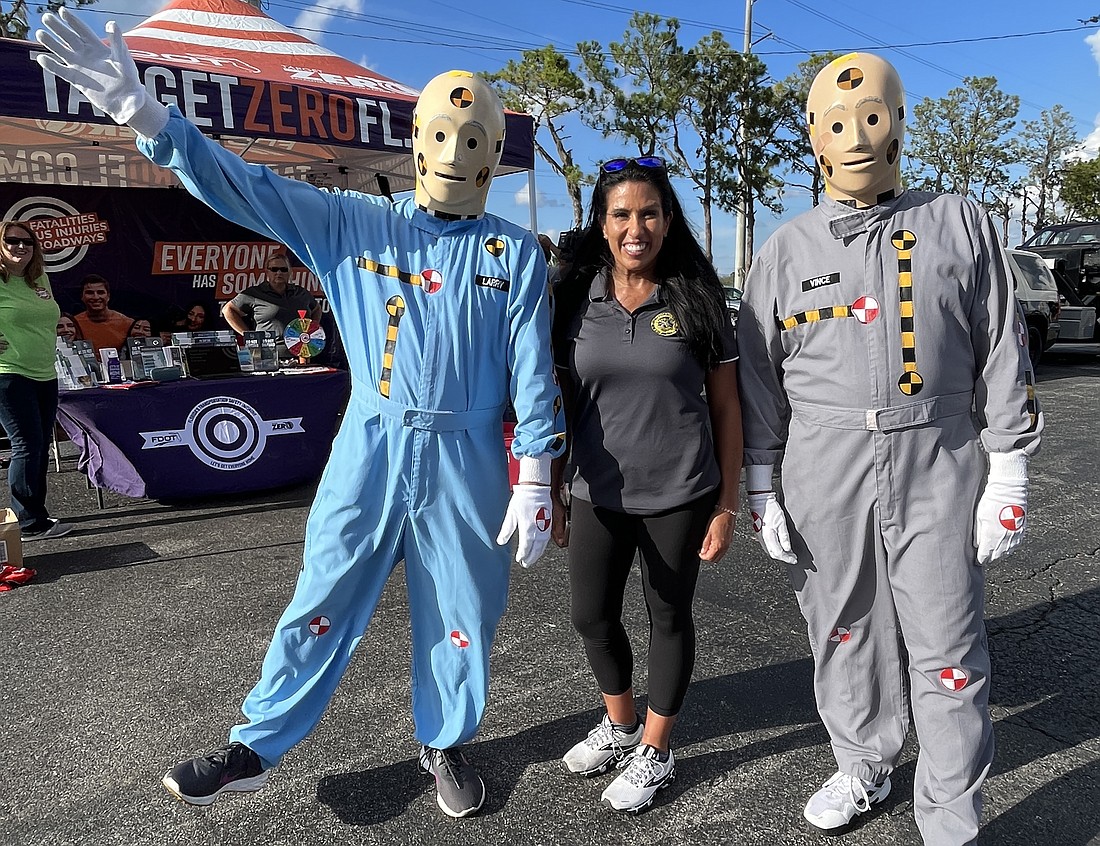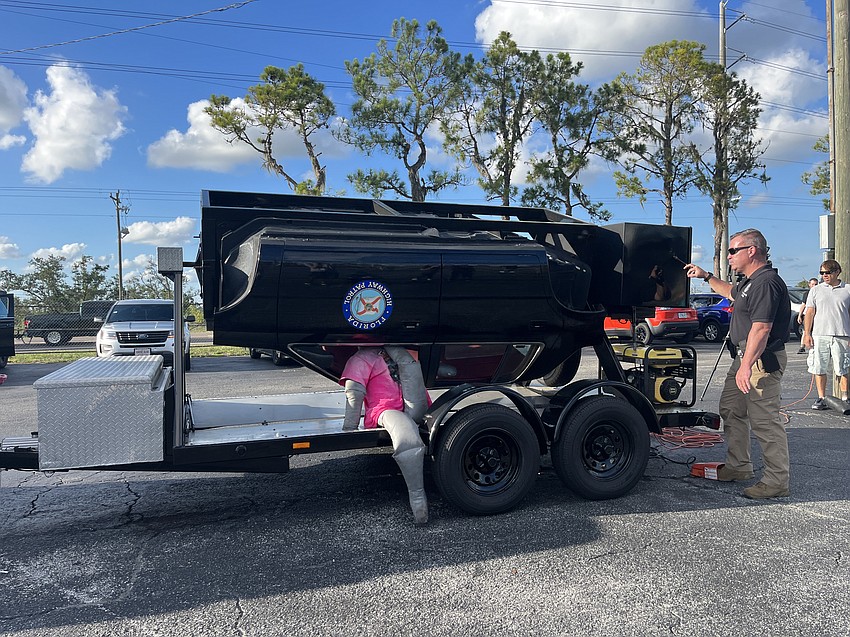- March 6, 2025
-
-
Loading

Loading

Janice Martinez, a State Trooper on patrol in Tampa at the time, remembered transporting a drunk driver to jail when she saw a car coming at her head on, driving down the road the wrong way.
She had less than two seconds to react, but she managed to veer off the road and brace for impact.
Neither Martinez or her passenger were injured, but she was trapped in her car and could only watch as the wrong-way driver fled the scene.
It took six hours, but the hit-and-run driver was apprehended.
“He was drunk, he was speeding, driving aggressively, had no driver’s license and was here illegally,” Martinez said. “Everything that we push with our ‘Target Zero’ messaging like slow down, watch your speed, don’t drive impaired, wear your seatbelt, everything you can do to arrive alive and get home safe, the guy that hit me violated every single one of those things.”
Now as the law enforcement liaison for District One of the Florida Department of Transportation, Martinez encourages people to avoid driving aggressively and to stay safe on the road.
FDOT hosted a kickoff event at Bradenton Motorsports Park June 8 for a campaign to discourage aggressive driving.

Keith Robbins, a district safety administrator for FDOT, said his department has conducted analysis of crash data and found that the types of crashes occurring most include intersection crashes, lane departure crashes and crashes involving bicycles and pedestrians. Nine out of 10 fatalities and three out of four injuries are results of those types of crashes, he said.
Men ages 18 to 34, make up more than 50% of the fatalities in those crashes.
“Young male drivers think they’re invincible,” Robbins said. “That contributes to aggressive driving because they think ‘nobody’s going to get me,’ ‘I’m not going to get in a wreck,’ and that’s not always true. The biggest thing is not only are they not invincible, but their actions can have consequences on the people around them.”
Martinez advises drivers to be vigilant at all times.
“It’s just watching what’s around you and being prepared,” she said. “Our message is buckle up, watch your speed, put your phone down and don’t drive impaired. If you keep within those four, you’ll arrive alive. … Your driving behavior is your choice, and if you choose to violate the law, it has the potential to hurt somebody or kill somebody.”
She said people don’t always understand the ripple effect their bad decisions on the road can have. As a homicide detective, Martinez said she would have to knock on people’s doors to deliver the news that their loved one died in an accident. She doesn’t want any law enforcement officer to have to deliver that news.
“We have to remember, it’s not just a number when we talk about data and fatalities,” she said. “There’s a family behind that. There’s a human being behind that.”